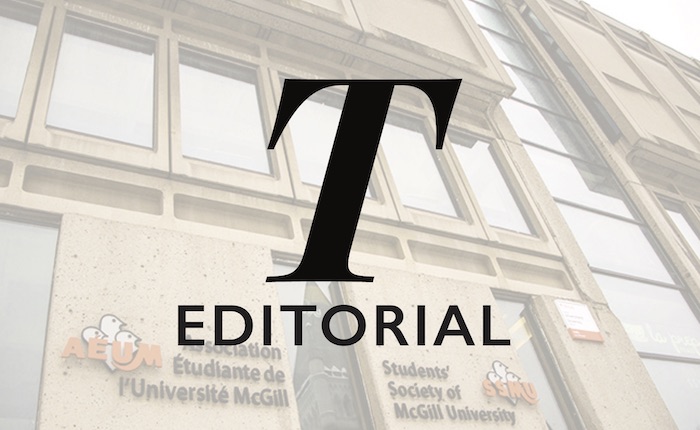In the latest scandal in a long line of occurrences that have kept elected student officials from fulfilling their duties, an anonymous Students’ Society of McGill University (SSMU) director spoke out about blatant racism within SSMU. More concerned with drama and airing out personal grievances, the 2021-2022 SSMU executive team not only failed to achieve their goal of addressing SSMU’s toxic culture, but have actively contributed to it. As a predominantly white institution, sexism against white executives has been taken much more seriously than allegations of racism. The clear double standard in their approach to tackling racism versus sexism signals that SSMU remains an unsafe space for racialized people. This year’s mistakes place a heavy burden on the next executive team to prove their commitment to protecting marginalized students.
The newest accusations against an unnamed white male executive carry eerie similarities to the experiences of rampant sexism revealed in the fall. Despite the degree of anonymity and the detailed accounts of sexism and racism rife within SSMU, only the article regarding sexism received a statement from the executive team pledging to call out toxic behaviour. On the other hand, no acknowledgement has been made of the article about racism at SSMU. Disappointingly, this piece details that other executive members were allegedly aware of the racist remarks made by their colleague––and no consequences were implemented. That racist comments were tolerated without action is indicative of their internal values. The lack of accountability for racism paired with the outspokenness about sexism reveals a wider issue of executives prioritizing issues based on their lived experiences. Meanwhile, in their silence, the almost entirely white executive team reinforces its deep-seated presence in SSMU. When executives focus on their personal grievances with SSMU as well as the optics of their every decision without considering the impacts of SSMU’s toxic work environment, they alienate members whose identities exist at marginalized intersections.
SSMU has not only jeopardized but, arguably, lost student trust. Between the silencing of SSMU employees, the mysterious disappearance and reappearance of president Darshan Daryanani, a repeated track record of poor communication and transparency, and even fumbles with Activities Night, this year has seen attempts and subsequent failures. Further, VP Finance Eric Sader’s apology to arts councillors for unprofessional comments show how executives are oblivious to power dynamics at play. Even students who choose to attend Legislative Council to understand the workings of the society frequently endure sessions where executives laugh and joke in response to conversations about racism and sexism. Though investigations occur, and a standard of discipline was, to some extent, set with the suspension of Daryanani, directors do not write anonymous pieces out of fear of retribution when policies are expansive and meaningful. This year has shown that issues are not addressed unless they are made public through the media, and even then, it is often only the issues that affect executives that are acknowledged. As it stands, executives are more worried about maintaining a positive image than actually enacting long-term changes that would benefit present and future employees and students.
SSMU executives have degraded their roles as student representatives, blaming these recurring issues on a preexisting culture problem. This year’s executive team has taken students’ distaste for SSMU and turned it into a repugnance for these students who are paid upwards of $30,000 to argue amongst themselves. Rebuilding any level of trust between students and SSMU will likely take years.
SSMU executive roles come with major responsibilities but, unfortunately, this year, the team has chosen to allocate its time to obsessing over scandals and disputes––executives have spent hours at Legislative Council meetings talking around all the issues that they do not want to confront. Rhetorical commitments to equity are not, and have never been, enough. This team’s term is coming to a shaky close and the next executive team will need to work hard to repair the damage done within SSMU.








